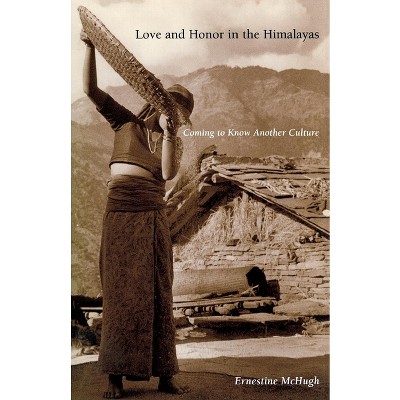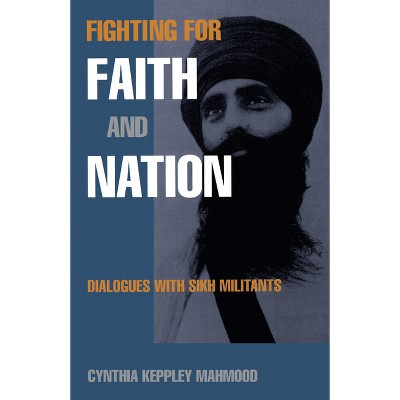Sponsored

Compromised Bodies - (Contemporary Ethnography) by Sarah O'Neill
$39.95
In Stock
Eligible for registries and wish lists
Sponsored
About this item
Highlights
- This ethnography unravels the continuing political tensions surrounding Senegal's 1999 national ban on "female genital mutilation" The Senegalese parliament authorized a national ban on "Female Genital Mutilation" in 1999.
- About the Author: Sarah O'Neill is Associate Professor of Medical Anthropology at the Université Libre de Bruxelles in Belgium and holds a FEDtWIN researcher position at the Royal Museum of Central Africa, Tervuren.
- 272 Pages
- Social Science, Women's Studies
- Series Name: Contemporary Ethnography
Description
About the Book
"The Senegalese parliament authorized a national ban on "Female Genital Mutilation" in 1999. Because only a third of the Senegalese population practiced female genital cutting (FGC) at the time, policy makers did not expect that the new law would cause controversy or provoke commotion. Yet, in Fouta Toro and among the Fulani, who traditionally practiced FGC, the response to the new law was fury, and frustrations often turned violent. More than a decade after the ban Fouta Toro was considered "the most difficult region" for anti-FGC activists, both from and outside the government. Tires were burned, international NGO delegates were threatened, and activists publicly speaking out against the practice were religiously condemned. Animosity towards the ban remains palpable in the region to this day. The ban, many (but not all) locals say, is nothing other than an overt act of Western cultural imperialism imposed on to their community. For these individuals, resisting the ban is critical for maintaining the autonomy and integrity of a traditional way of life. And from the outside, opposition to the law and NGOs can seem unified. However, anthropologist Sarah O'Neill discovers that on the ground, there are tensions between those who oppose the ban and those who support it - even as that support is nuanced and often complicated. This ethnography unravels the continued political tensions surrounding both national and international interventions in Fouta Toro and in Senegal that place protection of the female body at the center of their concerns. By way of the many stories of ordinary women and men caught up in debates around the value of the practice and meaning of FGC, the book reveals the personal struggles and difficult decisions Fulani face, be they traditional cutters, religious leaders, mothers, husbands, divorced women, or anti-FGC activists"--Book Synopsis
This ethnography unravels the continuing political tensions surrounding Senegal's 1999 national ban on "female genital mutilation"
The Senegalese parliament authorized a national ban on "Female Genital Mutilation" in 1999. Because only a third of the Senegalese population practiced female genital cutting (FGC) at the time, policy makers did not expect that the new law would cause controversy or provoke commotion. Yet, in Fouta Toro and among Fulani, who traditionally practiced FGC, the response to the new law was fury, and frustrations often turned violent. More than a decade after the ban, Fouta Toro was considered "the most difficult region" for anti-FGC activists, both from inside and outside the government. Tires were burned, international NGO delegates were threatened, and activists publicly speaking out against the practice were religiously condemned. Animosity toward the ban remains palpable in the region to this day. The ban, many (but not all) locals say, is nothing other than an overt act of Western cultural imperialism imposed on their community. For these individuals, resisting the ban is critical for maintaining the autonomy and integrity of a traditional way of life. And from the outside, opposition to the law and NGOs can seem unified. However, anthropologist Sarah O'Neill discovers that on the ground, there are tensions between those who oppose the ban and those who support it--even as that support is nuanced and often complicated. This ethnography unravels the continuing political tensions surrounding both national and international interventions in Fouta Toro and in Senegal that place protection of the female body at the center of their concerns. By way of the many stories of ordinary women and men caught up in debates around the value of the practice and meaning of FGC, Compromised Bodies reveals the personal struggles and difficult decisions Fulani face, be they traditional cutters, religious leaders, mothers, husbands, divorced women, or anti-FGC activists.Review Quotes
"Compromised Bodies is a welcome addition to the field of medical anthropology, a nuanced study of the practice of excision and its relation to larger social issues."-- "Dinah Hannaford, University of Houston"
About the Author
Sarah O'Neill is Associate Professor of Medical Anthropology at the Université Libre de Bruxelles in Belgium and holds a FEDtWIN researcher position at the Royal Museum of Central Africa, Tervuren.Dimensions (Overall): 9.0 Inches (H) x 6.0 Inches (W) x .61 Inches (D)
Weight: .89 Pounds
Suggested Age: 22 Years and Up
Number of Pages: 272
Genre: Social Science
Sub-Genre: Women's Studies
Series Title: Contemporary Ethnography
Publisher: University of Pennsylvania Press
Format: Paperback
Author: Sarah O'Neill
Language: English
Street Date: March 25, 2025
TCIN: 91923089
UPC: 9781512827231
Item Number (DPCI): 247-19-2857
Origin: Made in the USA or Imported
If the item details aren’t accurate or complete, we want to know about it.
Shipping details
Estimated ship dimensions: 0.61 inches length x 6 inches width x 9 inches height
Estimated ship weight: 0.89 pounds
We regret that this item cannot be shipped to PO Boxes.
This item cannot be shipped to the following locations: American Samoa (see also separate entry under AS), Guam (see also separate entry under GU), Northern Mariana Islands, Puerto Rico (see also separate entry under PR), United States Minor Outlying Islands, Virgin Islands, U.S., APO/FPO
Return details
This item can be returned to any Target store or Target.com.
This item must be returned within 90 days of the date it was purchased in store, shipped, delivered by a Shipt shopper, or made ready for pickup.
See the return policy for complete information.











